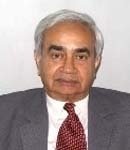The Commonwealth Games and the Commonwealth – Still Relevant?
11 Nov, 2010 · 3278
PR Chari deliberates on the significance of the Commonwealth and its sustenance in the long-term
Mani Shankar Aiyar’s demand after the Commonwealth Games concluded with “Let the investigation begin,” which was really a lament. Undoubtedly, the Games were a resounding success; India’s sportspersons covered themselves with glory, security arrangements were perfect and, much izzat was harvested by India. The Opening and Closing Ceremonies were extravaganzas highlighting India’s technological prowess and cultural diversity. But, the investigations into the Games’ expenditure also promise to be spectacular, although delays can be expected. Despite Kalmadi’s ouster, however, the general belief is that the Government will wait for the outcry to die down before innocuous reports are rendered.
But a vital question has been obscured in this noise, which is the relevance of these Games. Two objections are possible. First, why should they be held at all when we also organize the SAARC games, ASIAD and the Olympics, with their distinctive regional, continental and global flavors? And second, would it be more appropriate perhaps to hold these games to commemorate the Non-Aligned Movement or the Group of 77 and other such bodies that serve India’s larger politico-economic objectives?
This out-of-the-box thinking frames another question. What is the relevance of the Commonwealth itself at the present juncture? How did the Commonwealth idea evolve? Its linkage to Great Britain and the British Empire are indisputable, and its origins are traceable to the decline of Great Britain during the 1918-1939 interregnums between the two World Wars; this was hastened after 1945 by the decolonization process. Great Britain metamorphosed thereafter from a ‘super-state’ into the ‘Commonwealth,’ although its association with ‘empire’ and the primacy of Britain continued. Currently, the Commonwealth comprises the former members of the British Empire, and pursues unexceptional values like democracy, economic liberalism, freedom of speech and respect for human rights. Britain’s policy further involves avoiding entanglements with Europe and strengthening its alliance with the United States. These ideas have also permeated the Commonwealth, which has consolidated itself by establishing a Secretariat in 1966.
The irrelevance of the Commonwealth in the present-day international system is a constant refrain. Why? For one, the Commonwealth nations have hardly any common interests binding them. The headship of the Commonwealth by the British Sovereign is accepted without demur by most island specks in the Pacific, but not by Republics like India, while former Dominions like Australia and New Zealand have adopted a more ambivalent attitude. That apart, the Commonwealth has signally failed to live up to its lofty goals. Take democracy for instance. In Fiji, the elections brought Fijians of Indian origin into power in 1987. They were ousted by the head of the Fijian Army. Its membership of the Commonwealth was then deemed to have ‘lapsed.’ But Fiji was reinstated in 1997 with the military dictator installing himself as a civilian head of the State. Pakistan’s case is even more egregious. It stepped out of the Commonwealth between 1972 and 1989, rejoined in 1989, was suspended between October 1999 and May 2004, and again, from November 2007 to May 2008. But the Commonwealth could not take any worthwhile steps towards re-establishing civilian and democratic governance in Pakistan.
Sri Lanka illustrates an example of the Commonwealth’s failure to address internal conflicts, which excoriates several of its constituents and challenges their overall stability. Sri Lanka’s ethnic conflict lasted for almost three decades. Japan and Norway sought to mediate between the Sinhala and Tamil contestants. But, the Commonwealth failed to either assist Colombo to fight terrorism, or to draft its seminal 1978 Constitution, or to censure its human rights violations during the conflict.
Is the Commonwealth then a disaster? That would be overstating the case. Its greatest link is the common use of the English language. Commonwealth scholarships provide huge opportunities for young people to equip themselves and develop their countries. The Commonwealth is also designed to serve as the spokesperson of weak and poor states, and use ‘soft power’ as its instrumentality. The Commonwealth Games constitute another bond, although of dubious provenance. Newer areas could be fruitfully explored. Strengthening national structures in the less developed countries for good governance like the Commonwealth’s more developed nations, consensual decision-making, conflict prevention and so on are possible suggestions. Of course, it is pointless to lacerate the Commonwealth for its obvious ills. Ultimately, it is a club of nations; what they make of this club depends on the members. If the club is becoming irrelevant, the members have to blame themselves for its shortcomings.
There need be no doubts, however, regarding the longevity of the Commonwealth. Its institutions, which include its Secretariat in London and Organizing Committees in the constituent countries, are sustaining substantial bureaucracies. No bureaucracy, in our experience, has ever disbanded itself. For this reason alone, the Commonwealth Games and Commonwealth, despite their questionable relevance, will continue as heretofore. Indeed, their future is quite secure.


